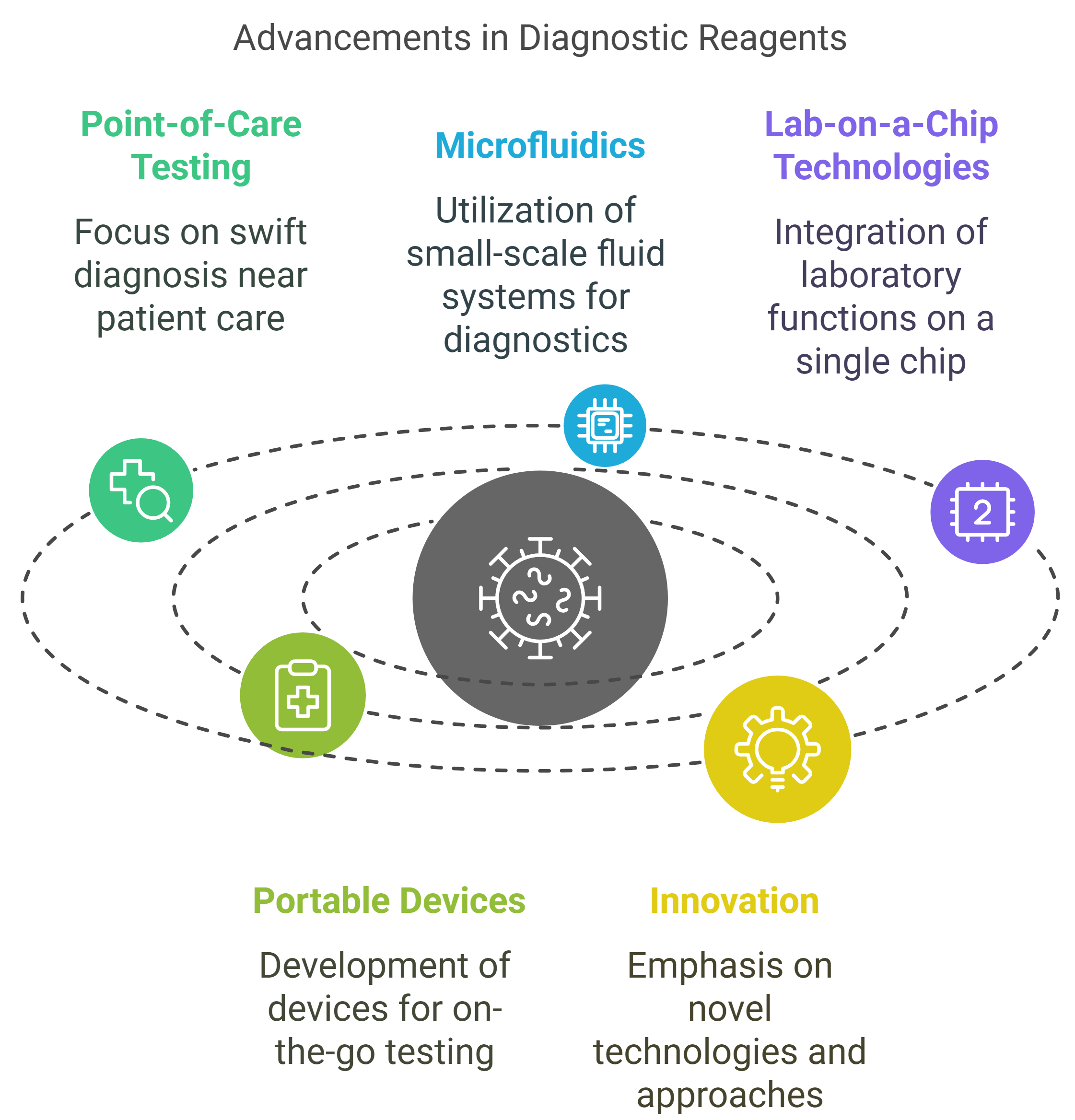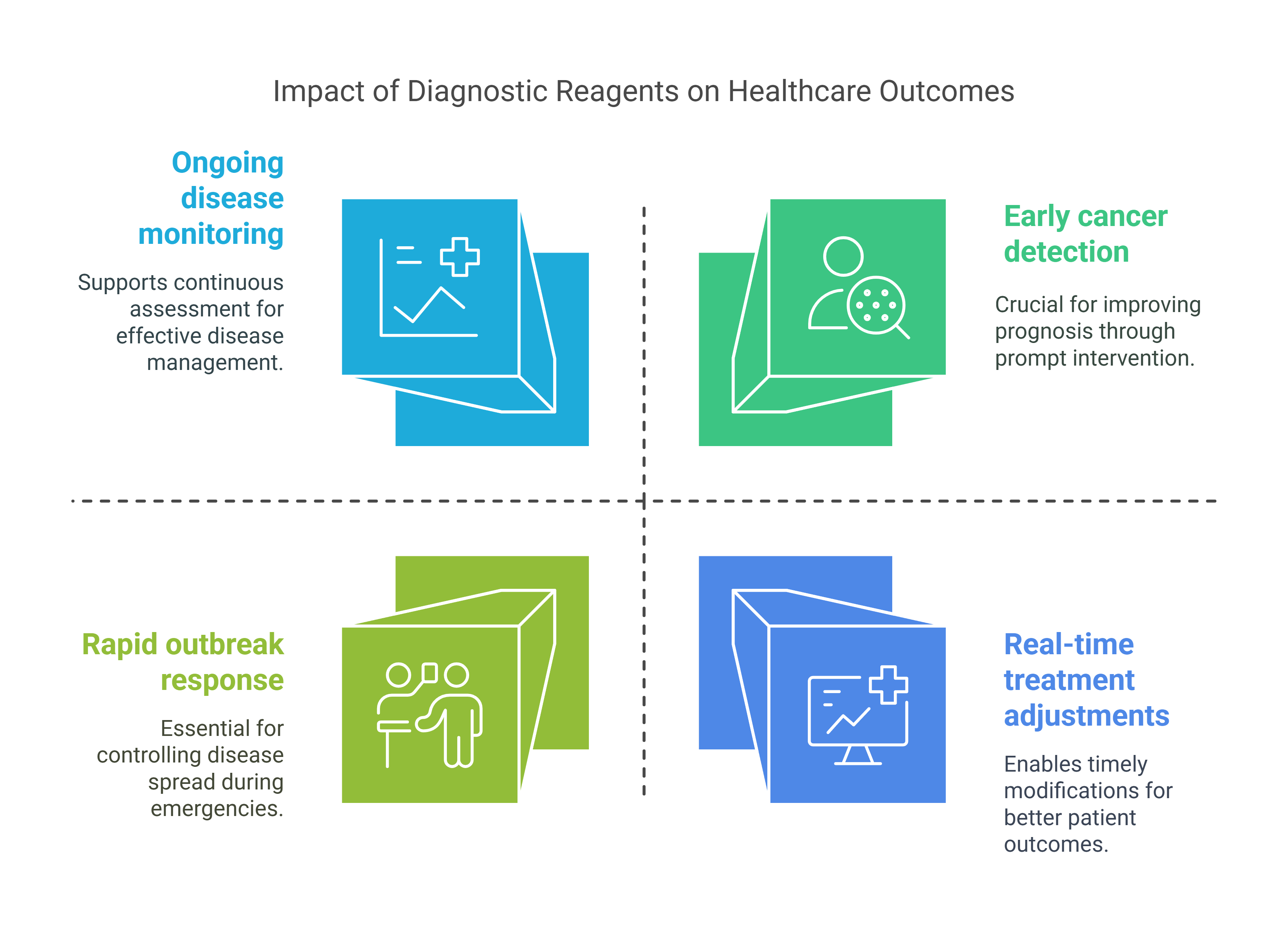

Scientific Excellence: Highlight the importance of rigorous scientific research quality in product development.
 Scientific inquiry, coupled with an unwavering dedication to quality, is crucial for the creation of effective diagnostic reagents. These factors not only propel innovation but also guarantee that healthcare professionals can depend on precise diagnostics for managing patient care. As the need for accurate and swift diagnostics escalates, organizations that emphasize scientific rigor and quality control will be at the forefront of enhancing healthcare outcomes on a global scale. By cultivating a culture of excellence in research and development, these entities can make substantial contributions to the elevation of global health standards while establishing themselves as reliable leaders in the diagnostic sector.
Scientific inquiry, coupled with an unwavering dedication to quality, is crucial for the creation of effective diagnostic reagents. These factors not only propel innovation but also guarantee that healthcare professionals can depend on precise diagnostics for managing patient care. As the need for accurate and swift diagnostics escalates, organizations that emphasize scientific rigor and quality control will be at the forefront of enhancing healthcare outcomes on a global scale. By cultivating a culture of excellence in research and development, these entities can make substantial contributions to the elevation of global health standards while establishing themselves as reliable leaders in the diagnostic sector.
One of the key methods for incorporating sustainability into research and development processes is the implementation of green chemistry principles. This strategy focuses on utilizing renewable resources, non-toxic substances, and energy-efficient manufacturing techniques. By emphasizing environmentally friendly materials in the production of diagnostic reagents, organizations can greatly diminish their ecological impact. For example, the use of biodegradable packaging and the reduction of hazardous chemicals in reagent formulation can result in safer products that are more easily disposed of in an environmentally responsible manner.
Moreover, advancements in reagent design, such as lyophilization (freeze-drying), can eliminate the necessity for cold-chain transport and storage, which is typically energy-intensive. Lyophilized reagents can maintain stability at room temperature, thus decreasing carbon emissions linked to refrigeration and prolonging shelf life. This not only reduces operational expenses but also improves accessibility by facilitating distribution in areas with limited resources.
Point-of-Care Testing (POCT): There is an increasing focus on the creation of diagnostic reagents tailored for point-of-care testing, facilitating swift diagnosis at or close to the location of patient care. Advances in microfluidics, lab-on-a-chip technologies, and portable devices are propelling this movement. Reagents intended for POCT need to be stable, user-friendly, and able to deliver rapid results, which is crucial for efficient patient management in emergency or remo environments.
Innovation serves as a fundamental element of advancement in the realm of diagnostic reagents, propelling developments that greatly improve healthcare services. With the increasing demand for swift, precise, and tailored diagnostics, it is imperative for companies to dedicate themselves to the exploration of novel technologies and approaches that can address these changing requirements. Such dedication not only establishes organizations as frontrunners in the sector but also significantly contributes to enhancing patient outcomes and promoting public health.
Impact on Healthcare Outcomes The progress in diagnostic reagents significantly influences healthcare outcomes in several ways:
 Early Detection: Enhanced diagnostic technologies facilitate the prompt identification of diseases, which is essential for conditions such as cancer an infectious diseases, where timely intervention can greatly improve patient prognosis.
Early Detection: Enhanced diagnostic technologies facilitate the prompt identification of diseases, which is essential for conditions such as cancer an infectious diseases, where timely intervention can greatly improve patient prognosis.
Enhanced Treatment Monitoring: Diagnostic reagents allow healthcare professionals to closely track the effectiveness of treatments, enabling modifications based on real-time patient response data.
Public Health Surveillance: The creation of advanced diagnostic tools strengthens public health efforts by supporting effective disease monitoring and outbreak management strategies. Rapid testing capabilities are crucial during health emergencies, such as pandemics, where swift case identification can help control transmission.
Artificial Intelligence (AI) Integration: The integration of AI into diagnostic processes is significantly improving the functionality of diagnostic reagents. AI possesses the ability to analyze extensive datasets to uncover patterns and enhance the performance of reagents, resulting in quicker and more precise diagnostic outcomes. This incorporation fosters progress in personalised medicine by enabling genomic testing and the identification of biomarkers that are customized to the specific profiles of individual patients.